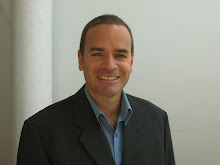I had a great day last weekend with a group of pastors in Tampico, a coastal city on the Gulf of Mexico. I spent the day teaching an 'intensive' class for 'Creation to New Creation', the first course in the Moore College ThC course. It was fantastic - we worked in detail through 3 chapters of the book, and they will complete the remaining 7 chapters in regular meetings (without me) over the next couple of months. My friend from Tampico who organised the day did a fantastic job and the students are enthusiastic and engaged.
At one stage we got talking about the 'pace' of theological education, particularly compared to other 'vocational' training. We were talking about the difference between a 'skills based' course and a more 'education based' course.
In the case of skills, you go to a course and learn how to do something better - whether it be strap a sprained ankle, cook a curry or preach a sermon.
In the case of education - it is often more about learning a body of knowledge that is going to shape your thinking and so inform your skills and application somewhere down the track. You might about the physiology of muscles and swelling which will better inform your practical treatment of sprains, or you might think about the doctrine of scripture which will inform your practice of preaching.
In this discussion, one of the students made an interesting point (and he wasn't an older guy just saying 'back in my day things were better.) He said that the in his opinion, one of the consequences of a very much 'instant results' generation was that the 'education' side of things seemed to be slipping down in priority. Now it was more about learning a new skill, being able to report on some concrete outcome at the end of the one hour class - and therefore, the instant, practical training was being valued more highly.
That's an interesting comment, because I think the process of theological education needs to be seen as a long, steady process. Sure, we need to keep thinking how we apply the things we are learning in our churches, lives and pastoral situations. But in the long run, if we are totally skills based, then we won't have much to say, will have trouble giving counsel in difficult situations and I think will be much more open to the trendy waves of 'new doctrine' that come through once every few weeks.
I suggested that the process of theological education was a bit like learning a new language. Day to day its actually pretty hard to see progress. Sometimes you'll have moments of 'A-Ha' (not the late 80's band) when you realise you have to use the verb estar when talking about location, but more often than not, progress will be slow and steady. You need to compare where you are now with where you were six months ago, not 2 days ago.
Of course all of that means that you need time and patience.
I'm encouraging my students to take a long view, to develop perseverance and godliness for the long haul, and understand that is a process that will take time.
Tuesday, August 30, 2011
Subscribe to:
Comments (Atom)
